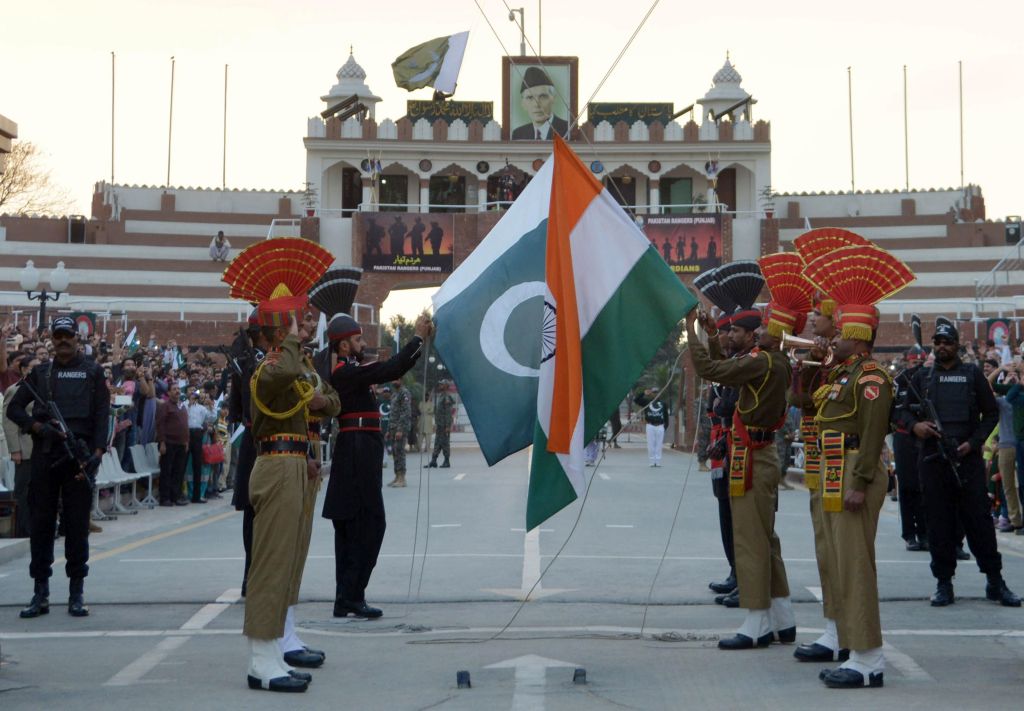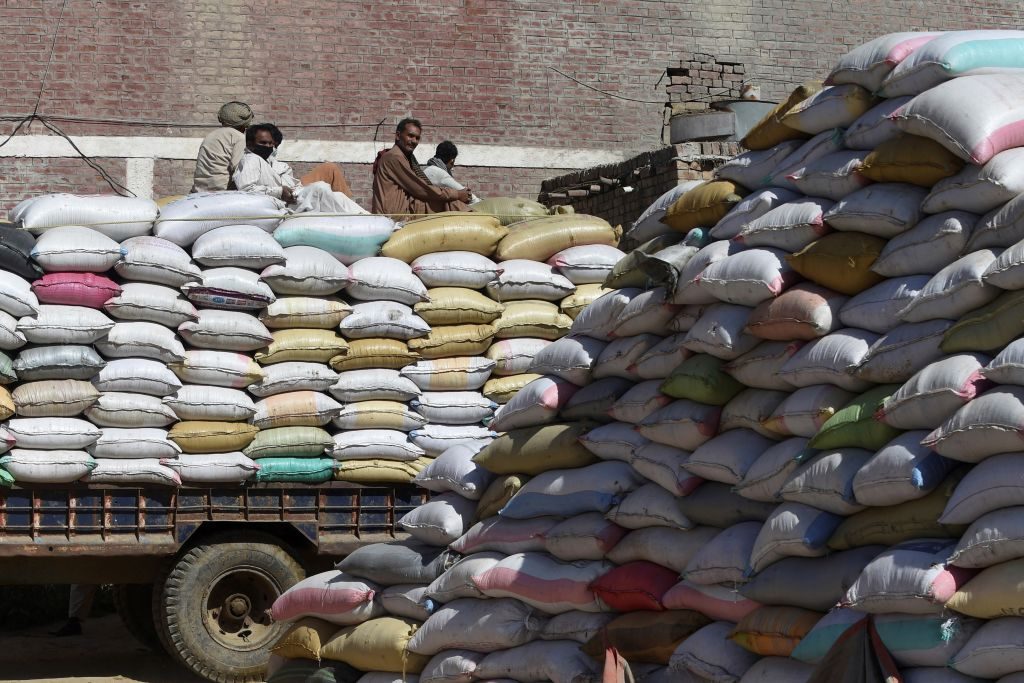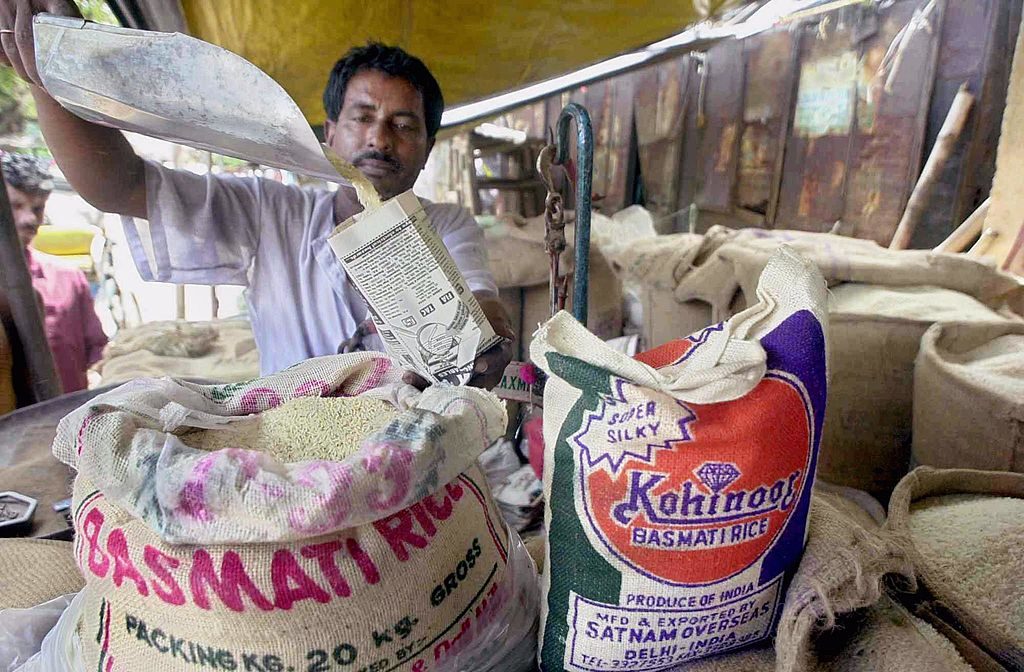- Tuesday, April 01, 2025

By: Shubham Ghosh
India and Pakistan are not just fierce enemies in matters of Kashmir, Indus River water or cricket. There is another aspect over which neither is ready to give up and that is the famous basmati rice. The long-grain rice is prized by both countries as far as their culinary tastes go and the innocuous food item has marked the latest tussle between the two nuclear-armed neighbors in South Asia.
How?
India has applied for an exclusive trademark that would give it the sole ownership of the distinctive rice title in the European Union, settling a dispute with the neighbour in its favour. The Pakistanis are apprehensive, understandably, because if the arch-rivals bag the verdict, it would be a major blow to their clout in a vital export market. Rice is a major export that Pakistan makes, second only to linen.
‘It’s like dropping an atomic bomb’
“It’s like dropping an atomic bomb on us,” Ghulam Murtaza, co-owner of Lahore’s Al-Barkat Rice Mills told AFP.

Pakistan didn’t waste any time to oppose India’s move to gain Protected Geographical Indication (PGI) from the European Commission. The PGI identifies an agricultural product – raw or processed – the quality of which, reputation or other features are linked to its geographical origin.
India is the largest rice exporter in the world and makes a net annual earning of $6.8 billion. Pakistan comes fourth in the table with $2.2 billion, as per the United Nations figures. These two nations are the only global exporters of basmati rice.
“(India) has caused all this fuss over there so they can somehow grab one of our target markets,” Murtaza, whose fields are about five kilometres from the Indian border, added.
“Our whole rice industry is affected,” he added.
Basmati is a staple in everyday diets across southern Asia, spreading from Karachi to Kolkata. It is used in biryani, a popular spicy dish across both countries.
From Karachi to Kolkata, basmati is a staple in everyday diets across southern Asia.
Pakistan expanded basmati experts to the EU in the last three years while India faced difficulties meeting Europe’s strict pesticide standards. It now fills two-thirds of the region’s approximately 300,000-tonne annual demand, according to the European Commission (EC).
“For us, this is a very, very important market,” Malik Faisal Jahangir, vice president of the Pakistan Rice Exporters Association, who claims Pakistani basmati is more organic and “better in quality”, said.

Indian Darjeeling tea, coffee from Colombia and several French hams are among the popular products with PGI status. It is different from Protected Designation of Origin, which demands all three stages to take place in the concerned region, as in the case of cheeses such as French brie or Italian gorgonzola.
India, on the other hand, says it did not claim in its application to be the only producer of the distinctive rice grown in the Himalayan foothills, but attaining PGI status would nevertheless grant it this recognition.
“India and Pakistan have been exporting and competing in a healthy way in different markets for almost 40 years… I don’t think the PGI will change that,” Vijay Setia, former president of the Indian Rice Exporters Association, told AFP.
EU rules require the two countries to reach an amicable resolution by September, after India asked for a three-month extension, a EC spokesman said.
“Historically, both the reputation and geographic area (for basmati) are common to India and Pakistan,” legal researcher Delphine Marie-Vivien said, adding: “There have already been quite a few cases of opposition to geographical indication applications in Europe, and each time a compromise has been found.”
Pak mulls joint application
Pakistan hopes to convince India to submit a “joint application” in the name of the common heritage that the rice has, Jahangir said. “I am confident that we will reach a (positive) conclusion very soon… the world knows that basmati comes from both countries,” he added.
If this arrangement doesn’t work out, Pakistan could move the European courts but a long review process then could put its key rice industry in trouble.